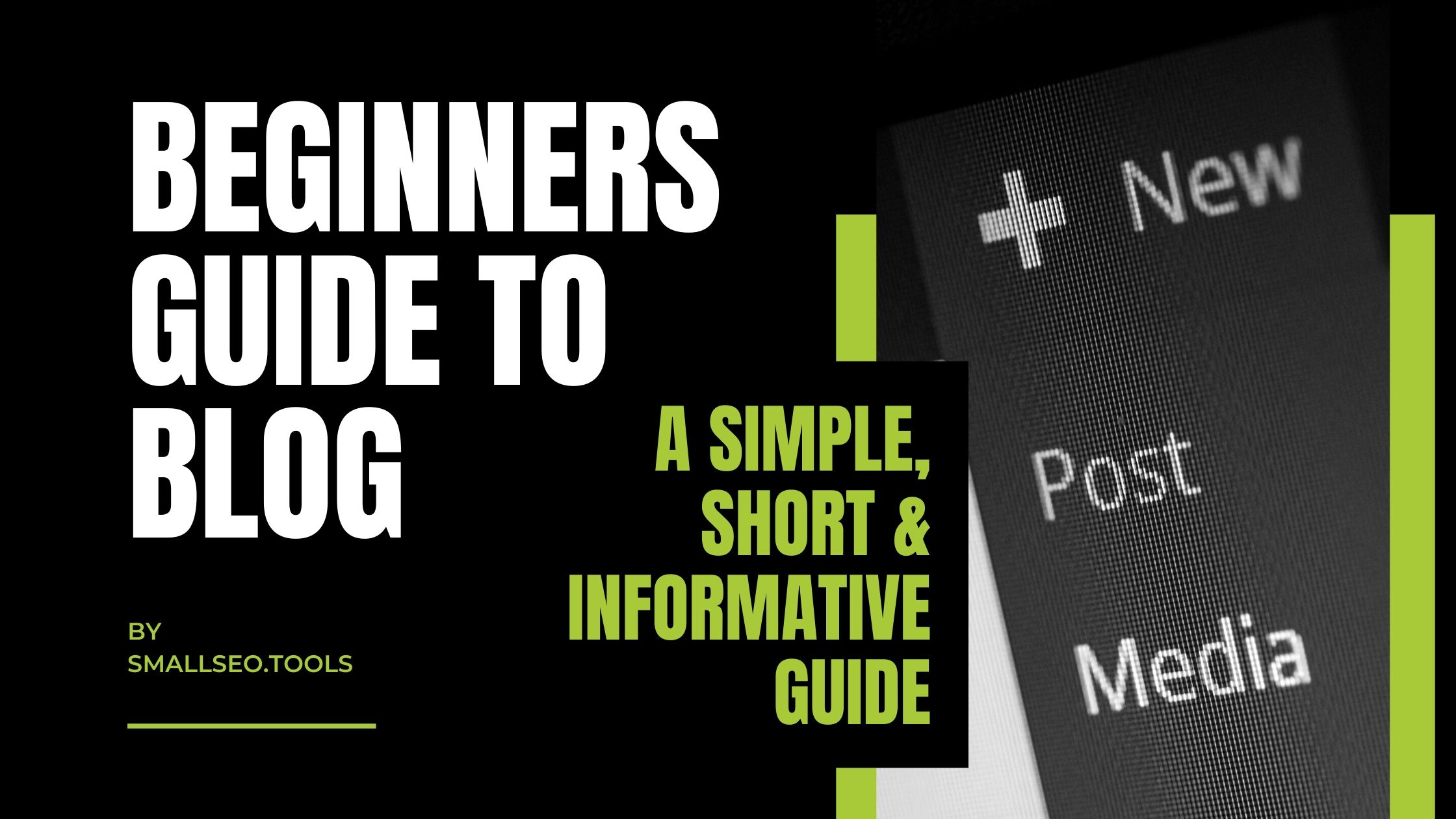The Beginners Guide To "Blog SEO"
Blogging has become extremely profitable over the years. Out of 1.7 billion websites, 600 million of them are blogs, but a lot of them are inactive or get very little traffic. Quite often, the reason for this is that they have not focused enough on optimizing their blog for search engines. If search engines can't find your blog or understand what it's about, then you're simply not going to rank.

The Beginners Guide To Blog SEO
When it comes to Blog SEO, there are four main parts which are the most important:
- Keyword Research
- On-Page SEO
- Technical SEO
- Off-Page SEO
All of these parts play a vital role in the process of ranking your blog in search engines.
If you want to rank, you can't just have the best result in one of these aspects, you should be aiming to have the best result in all aspects.
1. Keyword Research
Firstly, you need to research keywords.
While you shouldn't be writing for search engines, you should be writing about specific keywords. Otherwise, Google and other search engines will not understand what your content is about, meaning they won't rank it for any keywords.
If you need help finding keywords, you can use our keyword research tools, for example, the long-tail keyword finder.
Long-tail keywords are keywords that have more than 3 words. These keywords are usually easier to rank for, as there are less people trying to rank for them and therefore less competition.
Plus, the search intent of these keywords is also often much clearer than with short keywords.
But, make sure the competition is quite low for the keywords you're going for, you can do this by checking the metrics of the search results.
2. On-Page SEO
Once you have found the keyword you need to write your article and optimize it for search engines.
The easiest way to optimize for a term is to check what's already doing well in the SERP (Search engine result page). There are some more technical ways to do this, but for this example, we're going to go with the easiest method which is to do something similar.
Check their:
- Word count
- Keyword Density
- Heading Tags
Then, you want to write a piece of content that is quite similar. It doesn't necessarily have to be more words, but I would definitely go for something similar to the results on the first page. You should also consider the search intent of the user, as you want to make sure your page has a great user experience. If you're using WordPress you can use something like Yoast SEO or Rank Math to help optimize your post.
3. Technical SEO
The third part of SEO, is the technical SEO part. As the name suggest technical SEO is all about the technical aspects of SEO.
This includes:
- SSL Encryption
- Site speed
- Crawling/Indexing Errors
- Mobile-friendliness
- No Duplicate Content
Making sure your site doesn't have any errors in the areas mentioned above is a key part of SEO.
4. Off-Page SEO
Lastly, we have the off-page SEO and this includes:
- Link-building
- Social Signals
In this part of SEO, you are signaling to Google that you have great content.
How do you do this?
By building links from authoritative websites and also getting some engagement from social media. You can do this by sharing your blog posts and reaching out to other bloggers and getting them to link to you.
Final Thoughts
Blogging is profitable if you get the SEO-side of things right. It may take a little while to learn, but it's definitely worth it, as Google and other search engines the best source of free traffic. If you are feeling a little overwhelmed by SEO, start off with keyword research and getting the on-page SEO right, as those parts are usually fairly easy to understand.
Other than that it's just a case of keep learning, as with time comes wisdom.
leave a comment
Please post your comments here.SEARCH
-
Popular SEO Tools
- Paraphrasing Tool
- Plagiarism Checker
- Article Spinner / Rewriter
- Keyword Position Checker
- Grammar Check
- Domain Authority Checker
- Pagespeed Insights Checker
- Reverse Image Search
- Page Authority checker
- Backlink Checker
- Alexa Rank Checker
- Backlink Maker
- Domain Age Checker
- Website Ping Tool
- Website Seo Score Checker
- Keyword Density Checker
- Website Page Size Checker
- Word Count Checker
- Mozrank Checker

 ™
™